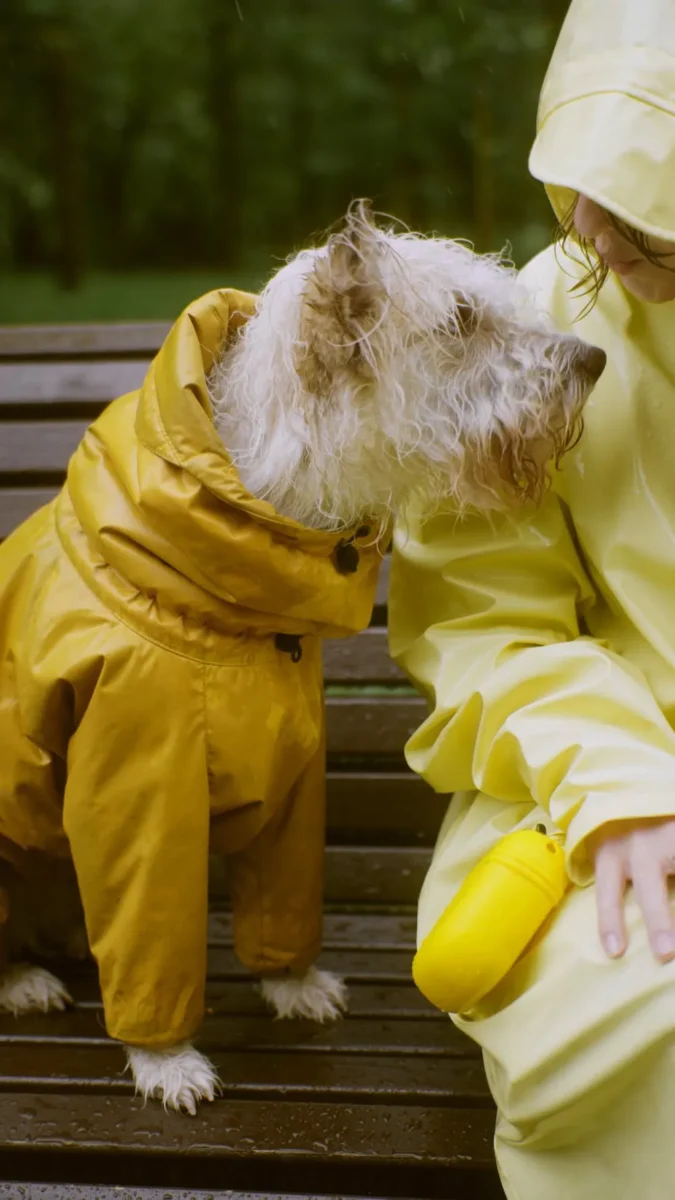If your dog has been scratching himself more than usual, it’s possible that he might be experiencing hives. Hives are a common allergic reaction in dogs and can cause a lot of discomfort for them. In this article, we will discuss what hives are, the symptoms of hives in dogs, and how to treat them. We will also cover some of the potential causes of hives in dogs. So if you’re concerned that your pup might be suffering from this condition, keep reading!
What Are Hives?
Hives, also known as Urticaria, are raised, itchy welts that can appear on the skin. They are often caused by an allergic reaction and can be very uncomfortable for dogs. Hives can range in size from a few millimeters to several centimeters. They may be round or oval and can appear anywhere on the body.
Hives can also be the result of an underlying medical condition, such as an autoimmune disease. In most cases, hives are not serious and will go away on their own. However, if your dog is experiencing severe itching, swelling, or difficulty breathing, you should contact your veterinarian immediately.
If your dog has hives, you’ll likely notice him scratching or biting at his skin vigorously. In severe cases, hives can even lead to hair loss. If you think your dog has hives, it’s best to take him to the vet for treatment.
Can Dogs Break Out in Hives?
Hives are a common allergic reaction in humans, but can dogs also break out in hives? The answer is yes – dogs can definitely have allergic reactions that cause them to develop hives. Just like in humans, hives in dogs are usually caused by an allergen that has come into contact with the skin.
Common allergens that can cause hives in dogs include pollen, dust mites, insect bites, and certain foods. When a dog comes into contact with an allergen, the immune system overreacts and causes the release of histamine. This histamine response leads to the symptoms of hives, which include itching, swelling, and redness of the skin.
In most cases, hives will go away on their own within a few days. However, if your dog is having difficulty breathing or swallowing, it is important to seek medical attention right away, as these could be signs of a more serious reaction.
Symptoms of Hives in Dogs
The most common symptom of hives is intense itching. If your dog is scratching himself more than usual, it’s possible that he has hives.
Other symptoms of hives include:
- Redness or swelling of the skin
- Hair loss
- Crusting or oozing of the skin
- Sores from excessive scratching
- Difficulty breathing
If your dog is experiencing any of these symptoms, it’s important to take him to the vet as soon as possible. Hives can be very uncomfortable for dogs and can even lead to serious health problems if left untreated.
Causes Of Hives in Dogs
There are many potential causes of hives in dogs. The most common ones are discussed below.
Allergies
Allergies are the most common cause of hives in dogs. Dogs can be allergic to a variety of things, including food, pollen, and insect bites. If your dog has hives, your veterinarian will likely recommend doing an allergy test to determine the trigger.
Infections
Bacterial and viral infections can sometimes cause hives in dogs. If your dog is scratching himself more than usual and seems to have a fever, it’s possible that he might have an infection. Your veterinarian will be able to diagnose an infection with a blood test.
Autoimmune Diseases
Autoimmune diseases like lupus can sometimes cause hives in dogs. If your dog has been diagnosed with an autoimmune disease, hives may be one of the symptoms.

Medications or Supplements
« How to Rescue and Adopt a Golden Retriever in Las Vegas: A Guide for Loving Dog Owners
Golden Retriever Rescues in New Hampshire: Your Guide to Adopting a Furry Friend »
Certain medications and supplements can sometimes cause hives in dogs. If your dog is taking any medication or supplement, it’s important to speak with your veterinarian about the potential side effects.
Plants
Some plants, such as poison ivy, can cause hives in dogs. If you think your dog has come into contact with a poisonous plant, it’s important to wash the area with soap and water and call your veterinarian immediately.
Chemicals & Pesticides
If your dog has been exposed to chemicals or pesticides, it’s possible that he might develop hives. If you think your dog has been exposed to something toxic, it’s important to call your veterinarian immediately.
Treatment for Hives in Dogs
While hives can be a nuisance for your furry friend, they are usually not serious and will go away on their own within a few days. However, if your dog is scratching so much that they are causing themselves harm, you may need to take some action. The first step is to try to identify any possible triggers, such as certain foods, medications, or environmental allergens.
Once you have identified the trigger, you can take steps to avoid it in the future. If your dog is still experiencing hives, there are several treatment options available. You can also give your dog an over-the-counter antihistamine like Benadryl. However, it’s important to speak with your veterinarian before giving your dog any medications.
In severe cases, your veterinarian may prescribe a steroid cream or oral steroid to help relieve the symptoms of hives. If your dog has difficulty breathing, they may also recommend giving him oxygen therapy. With proper treatment, most dogs will start to feel better within a few days.
How To Prevent Hives In Dogs?
Every dog owner knows the feeling of seeing their beloved pet scratch incessantly and the frustration that comes along with it. There are a few things you can do to help prevent hives in your dog.
- First, try to identify any potential allergens and remove them from your dog’s environment. If you suspect that your dog is allergic to something in their food, talk to your vet about switching to a hypoallergenic diet.
- You can also give your dog regular baths with a mild, hypoallergenic shampoo to help remove any allergens from their coat.
- Finally, if your dog does have an allergic reaction, you can give them antihistamines to help relieve their symptoms.
With a little care and attention, you can help keep your dog comfortable and hives-free.
Our Final Thoughts
Hives in dogs can be a nuisance, but they are usually not serious and will go away on their own within a few days. However, if your dog is experiencing hives, it’s important to speak with your veterinarian to rule out any underlying health conditions.
Once you have identified the trigger, you can take steps to avoid it in the future. If your dog is still experiencing hives, there are several treatment options available. With proper treatment, most dogs will start to feel better within a few days.










